1 Kings 17.1-16
Fleming Rutledge recalls the confirmation program in the parish where she first preached. The group of thirteen year olds met every week for seven months. At the start of the course, Fleming prompted them with a simple exercise.
She asked each confirmand to draw a picture of God.
The results were not surprising.
“All sorts of things emerged,” she writes, “clouds, suns, circles, triangles, and a preponderance of old men with white beards.”
Once the confirmands completed the illustrations— idols— the class sat in a circle and took justifying their depiction of God. “At this point,” Fleming recalls, “a clean, empty wastebasket was brought in and set down in the middle of the circle.”
She then instructed each confirmand, one by one, to tear up his or her picture of God and throw the pieces in the trash. As they did so, the Bible was opened and the Second Commandment read solemnly, "Thou shalt not make for thyself any graven image, or any likeness of anything that is in heaven above, or in the earth beneath, or in the waters under the earth."
The law provoked silence from the students who had just trespassed against it. The turn came, Fleming writes, when she then asked the students the question at the heart of biblical faith, ”If we can't draw a picture of God, and if we don’t know what God looks like, and if God isn't like anything in heaven or earth, then how can we know anything about God at all?"
While the students pondered the question, the teacher turned to an earlier chapter in the Book of Exodus, the story of the Lord encountering Moses at the Burning Bush.
As Fleming remembers it:
“We did this exercise every year at Christ Church, and every year the Lord was good enough to give us one or two bright-eyed young people who would catch on. Let me read the crucial parts again. Remember the question: How do we know anything about God? In the light of the Second Commandment, how do we know anything about God? That was the question. Every year, the story of the Burning Bush would elicit this answer from one or another boy or girl, ”He tells us! God tells us who he is!" It was always a magical moment in the class for those who "got it.””
The Lord Jesus insists on nothing less in the Gospels when the Sadducees attempt to entrap him with questions about the woman who was widowed seven times.
“In the resurrection, whose wife will she be?” they ask Jesus.
And the Lord replies, “Is not this the reason you are wrong, that you know neither the scriptures nor the power of God?"
Neither the scriptures nor the power of God.
The link between the two is the key.
The power of God is manifest in his word.
For those who get it, it’s better than magic.
It is God’s message itself.
“Now Elijah the Tishbite, of Tishbe in Gilead, said to Ahab, “As the Lord the God of Israel lives, before whom I stand, there shall be neither dew nor rain these years, except by my word.” And the word of the Lord came to him.”
The Lord’s calling of Elijah makes up the dramatic center of the book of Kings, and Elijah's narrative in the Old Testament marks an epochal shift in the way the Lord works with and among and against his people Israel.
From the time of Moses through the period of the judges, the Lord worked through the twelve tribes of Israel with the high priest as the central mediating figure.
After the Book of Judges, with Saul and then David especially, the Lord worked with Israel as a whole through Israel’s king.
After King David’s death, when successor after successor rejected the Lord and succumbed to syncretism and idolatry, the Lord’s way of working once again shifted, away from Israel’s kings and to the Lord’s prophets and the remnant community created around them.
Elijah inaugurates this final shift in the Old Testament.
In the chapter before the passage, King Ahab of Israel enters into a diplomatic marriage with Jezebel, a pagan consort from Sidon. Jezebel brings with her to the holy land four hundred and fifty prophets of Baal. No sooner has Ahab said “I do” to Jezebel than he erects a temple to Jezebel’s god, Baal, and initiates a violent campaign to persecute the faithful remnant of Jews.
The narrator of the book of Kings puts it bluntly:
“Ahab son of Omri did more evil in the sight of the Lord than all who were before him…as if it had been a light thing for him to walk in sin…[thus] Ahab did more to provoke the anger of the Lord, the God of Israel, than had all the [unfaithful] kings of Israel who were before him.”
The Holy Spirit blows where it will, Jesus says.
Just so—
In 1 Kings 17, Elijah bursts upon King Ahab’s council chambers without an iota of introduction or warning, and, inexplicably, the man of God from Gilead dares an explosive, seemingly self-endangering announcement, “As the Lord the God of Israel lives, before whom I stand, there shall be neither dew nor rain these years, except by my word.”
The nineteenth century German preacher F.W. Krummacher described Elijah as “a man mighty in word and deed, and in miracles besides; who broke forth suddenly like a fire, and whose word burnt like a torch…”
Baal is the Canaanite Zeus.
Baal is the god of the sky.
Baal is the rain god.
There shall be neither dew nor rain except by my word.
King David has been dead for a century. Dead also, it has seemed, is David’s Lord. For a long time, Yahweh has appeared to be in retreat from the rival gods.
F.W. Krummacher writes, “Under Ahab’s reign, heathen altars occupy the holy land, every hill smokes with their sacrifices, darkness reigns throughout the land with no cheering epiphany star until…the word of the Lord comes to Elijah of Gilead.”
His name is his sermon.
Elijah means, “Yahweh is my God.”
Or, Yahweh is the only true God.
To prove it, Elijah prophesies drought and famine with divine infallibility thereby revealing the impotence of Ahab’s barren deity.
There shall be neither dew nor rain.
And immediately the prophet’s word strikes like a fever into the heart of the earth because the word of God is the power of God.
Elijah is the balm God brings from Gilead.
A few years ago, in a Wall Street Journal article entitled “Revelation Revised,” Stephen Prothero, a professor of religion at Boston University, wrote:
“Any claim of revelation is preposterous. It presumes that God exists, that God speaks, and that all is not lost when human beings translate that speech into ordinary language.”
Needless to say, Professor Prothero’s rejection of revelation reflects a skepticism which many people— many church people, in fact— share. He certainly did not intend it as such, but those two sentences in his Wall Street Journal article are the perfect distillation of biblical faith. Ironically, they are the same fundamental presuppositions that appear in the prophet Elijah’s self-introduction in 1 Kings 17.
1. The true God is a living God; that is, the true God is lively, at work and up
to something in the world.
2. His word comes to us with the power to execute what it announces— the
word works what it says.
3. All is not lost therefore— with mere ordinary language, we are armed
with the power of God.
As Karl Barth taught, the question the Bible answers is not, “Does God exist?” The Bible threatens us by answering a more disarming question, “What has the God who exists said? What does God say to us?” According to Barth, all of scripture and the entire Christian faith hang on the veracity of Elijah’s introduction, “And the word of the Lord came to him.”
He tells us. God tells us who he is.
The apostle Paul writes about this dynamic between the word of God and the power of God in the climax to his epistle to the Romans, “So then faith is awakened by the message, and the message that awakens faith comes through the word of Christ.”
Faith is created by the message itself.
The word is the active agent.
This is exactly why Paul is not ashamed of the gospel.
It is the power of God.
Years ago, a worshipper came up to me after service and introduced himself. “Hi, I’m John Bobo,” he said. “I’m new here, and I want to talk to you about transferring my membership to this congregation.”
“Really? What makes you want to join this church?”
“The preaching,” he replied.
“Oh,” I said, as I felt my head swell a little bigger. “You think the preaching’s pretty good, do you?” And I elbowed the choir director standing next to me.
“Good? No, you’re not very good, sorry. But, you do preach like you really believe God said all this stuff, that God spoke. That’s what I want. That’s harder to find in the church than you might guess.”
And I thought of Fleming’s story about her confirmation class.
“God says,” I said to him.
“What’s that?” he titled his head like the U.S. Attorney he was and he asked me to fill in the loophole.
“God says,” I said, “It’s not that God said all that stuff in the Bible but is otherwise silent. It’s that with it— with scripture— God says. What God said is the way God speaks still.”
I watched him mull it over and then I witnessed the epiphany come over him as he got it. Fleming’s right, it was a magical moment.
“I get it,” he said, “I get it.” This is the word of God for the people of God, he muttered to himself in sudden realization. “That gives me even more reason to join.”
Regarding the scarcity of conviction in the power of the word, Fleming Rutledge writes:
“The spectacle of mainline church decline is not encouraging to anyone. Speaking as one who has traveled extensively through the mainline churches, I believe that the essential problem[afflicting the mainline churches and the reason for their decline and divisions can be precisely identified in the words of Jesus to the Sadducees: “Is not this why you are wrong, that you knowneither the scriptures nor the power of God?”
The power of God is manifest through his Word. This is the power that created the Church in the first place, it is the engine that drove the Reformation⎯yet this power today is increasingly less heard in mainline churches, either as thunder or as still small voice, for mainline Christians have largely ceased to believe that God speaks. All the symptoms [of our shrinking and schisms] arise from that cause. That is the underlying ailment that is producing the morbid effects. The vitality of Protestantism will only come in the present as it camein the past, through the power of the Word itself.”
You do preach like you really believe God said all this stuff. That’s harder to find in the church than you might guess.
I have never forgotten his judgment.
I’m still not very good. But I am not ashamed of the gospel. Even attached to my words— I know. In my bones— in my cancer-carrying bones— I know even attached to my words, the word of God is the power of the living God.
The correlation Fleming Rutledge draws between the vitality of the people of God on the one hand and their appreciation for the power of the word of God on the other hand is not an arbitrary connection.
It is a causality drawn clearly by the scriptures.
For instance—
Just after Elijah proclaims the word of the Lord to Baal’s king and consort, the Lord sends him into the wilderness— an exodus from the promised land.
An exit.
A century before, the Philistines captured the ark, a sign that the Lord had removed himself from Israel.
In judgment.
Just so, when God sends Elijah out into the wilderness, God’s word is silenced in Israel, for Elijah is the only bearer of Yahweh’s word left in the promised land. To the famine of bread and water, Yahweh adds a famine of the word.
In other words—
By sending Elijah out of Israel, the Lord removed from his people the word they refused to revere and to hear.
You’re not going to listen, I’m leaving.
Deprived of God’s word, they were deprived of God’s power.
And so they dwindled.
Which is to say, every Christian believer has an obligation— no, a vocation— to attend to and abide with the scriptures. It is your calling to search the scriptures.
Mind you— there can be no calling without one who calls.
Elijah obeys the word of the Lord so far as to allow unclean ravens to feed him. Elijah obeys the Lord so far as to journey into Zarephath, Jezebel’s territory, where he has every expectation of being captured and killed. Elijah runs for seventeen miles alongside Ahab’s chariot. Elijah calls down fire from the Lord and defeats four hundred and fifty prophets of Baal. Elijah is, as Ahab names him, “the Troubler of Israel.”
Nevertheless!
The most important part of his story comes in the first verses, “And the word of the Lord came to Elijah.”
In his Wall Street Journal article, “Revelation Revised,” Professor Stephen Prothero writes, "Any claim of revelation is outrageous. It presumes that God exists, that God speaks and that all is not lost when human beings translate that speech into ordinary language.”
“But,” Prothero continues, “time mutes the outrage, or muffles it. Many of us greet the miracles of Jesus with a shrug, and there is little scandal any more in claiming that the Bible is the word of God.”
Notice—
The professor of religion makes the same mistake the U.S Attorney first made.
He puts revelation in the past tense.
The scholar knows not what the seventh grade confirmand knew.
He tells us.
The claim is indeed outrageous.
The claim is not that once upon a time God spoke— you’re wasting your Sunday morning if that is our claim.
The claim is not that God spoke; the claim is that God speaks.
The claim is not that God spoke long ago and we call this past revelation scripture; the claim is that the living God speaks today by means of the scriptures.
To paraphrase the Second Helvetic Confession, the saying of what the Lord has said just is the Lord’s saying.
It’s revelation, revisiting us each and every time anew.
The theologian Steven Paulson tells the story of one of his seminary students who took his first church out in the hinterlands of Minnesota.
After a few weeks, the newly minted pastor called Professor Paulson to update him on his new parish.
“How do you fire a volunteer?”
Dr. Paulson asked him what he meant, and the rookie pastor replied, “There’s this old widow in the congregation. She’s here every day sweeping the hallways with her straw broom. She’s mean. She’s rude. She’s generally unpleasant, and she does a terrible job of sweeping and cleaning. But, we’re not paying her, so I don’t know how we’re supposed to get rid of her.”
“Maybe there’s a reason she needs to be there day after day. Try finding out what it is, and if it is, don’t waste any time. Give her the goods. Lay the Gospel on her.”
Paulson says a few days later the student called him again. “Dr. Paulson, Dr. Paulson...I did it. I asked her why she spent so much time at church, but seemed so miserable doing it.”
“And?”
“And she told me, ‘Forty years ago, I cheated on my husband with another man, and twelve years ago he died without ever knowing I had betrayed him.’”
“So, I did what you told me,” the student told the professor, “I said to her, ‘In the name of Jesus Christ and by His authority alone, I absolve you of all your sins.’ And as soon as I gave her the absolution, her whole countenance changed and she said, ‘I have been here Sunday after Sunday, day after day, week after week, for forty years pushing this God-forsaken broom, waiting to hear God say that to me.”
Notice—
She didn’t say, “I’ve been waiting to hear someone say…”
She said, “I’ve been waiting to hear God say.”
To the former student’s story, the professor laughed and said, “Amen.”.
“Wait, it gets better,” the student added.
“No sooner had she told me she’d been waiting to hear God speak, she threw the broom down on the floor and said, ‘I don’t have to do this anymore,’ and she walked out the front door, light on her feet, freed of her burden.”
The word works what it says.
The word of God is the power of God.
Present tense.
All is not lost.
What is the word the Lord has in this word for you this day, I wonder?
I sure as hell don’t know.
I’m not in charge up here.
Because God speaks, because Jesus lives with death behind him and is the one who so speaks through scripture, Robert Jenson proposes a bracingly simple question for those come to the word of God for a word from God.
“What does the text promise,” Jenson asks, “and what may I thus promise that can be and only can be because Christ lives and speaks? What future may I promise others and cling to myself by the leading and authority of this text?”
Here’s what I know.
And here’s what I can promise.
I know some of you are facing the fears that come with the fact that none of us are getting out of life alive and you wonder where God is amidst all the beeps of the monitors and drips of the bags and the aromas of the disinfectant and the steamed smells of the hospital food.
I know some of you are discouraged that more than one quarter of the churches in our denomination have left our denomination in the past year.
I know some of you are worried about our partisan divide and what the coming year portends for our democracy.
I know some of you see new families in our midst but fret how they will foot the bills covered by long-timers.
I know some of you are burying marriages.
I know some of you are sitting shiva next to parents.
I know some of you are attempting to climb back onto the wagon.
I know you’re all wondering where God is in the midst of it.
That’s what I know.
And this— on the basis of this word of the Lord to Elijah— this is what I can promise, and perhaps it is the Lord’s word for you this day.
So listen for the word of the Lord.
In Elijah’s day and for a hundred years before—
It has appeared that Yahweh is in retreat.
Gone.
Absent.
Dead or distant or disinterested.
Nevertheless!
The word of God comes to God’s balm from Gilead.
Therefore— hear the good news:
While the church may suffer setbacks, while God’s people may suffer, while you may mourn or steward fright, the Lord is never frustrated. He never retreats. He never has to regroup or reconsider. His resources or numbers are never too little or too stretched or too meager to use to accomplish his promises to you, for us. As stuck as a situation might seem, his word is always moving forward, ready “to strike like a fever into the heart of the earth.” No matter how far gone a circumstance may seem, he always has a balm from Gilead.






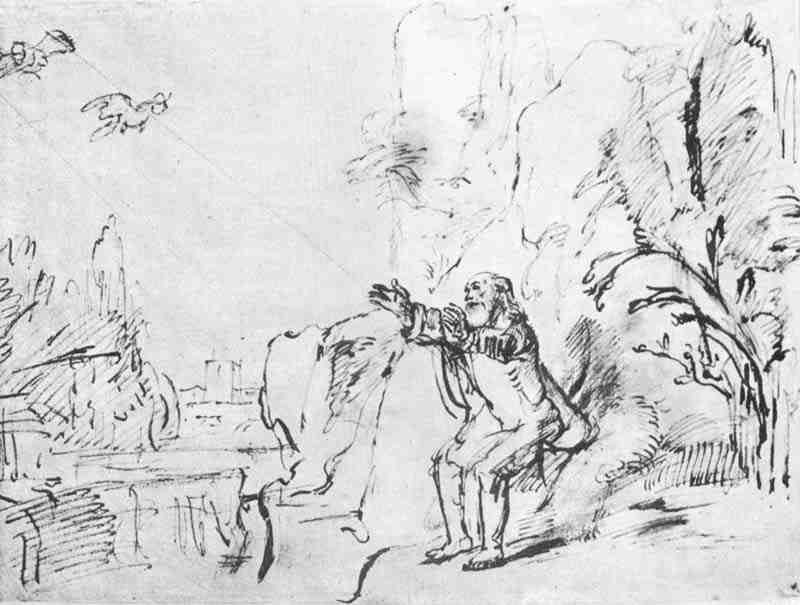

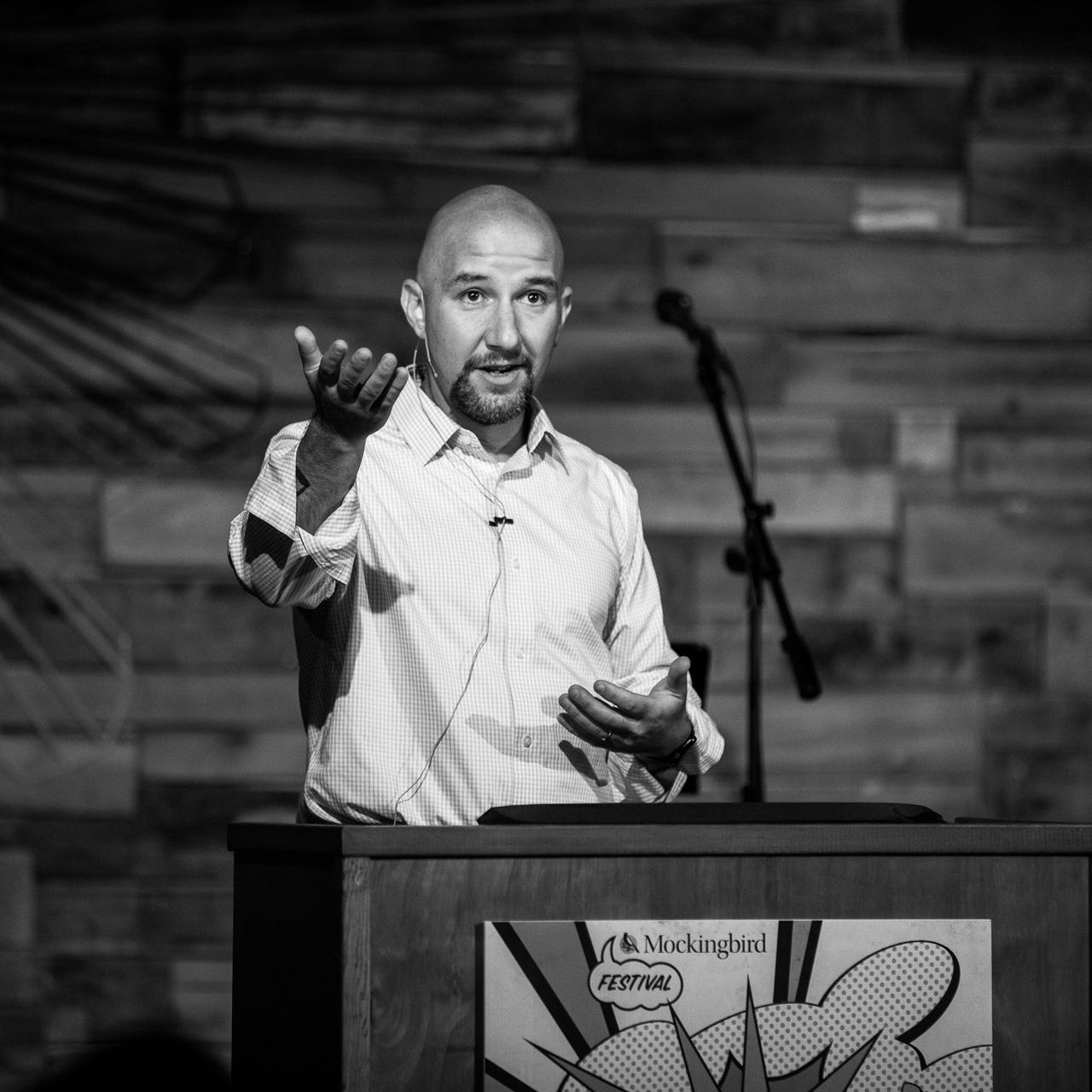

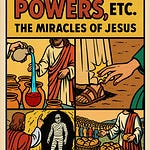


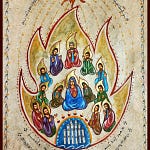
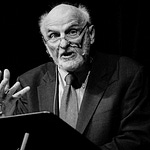
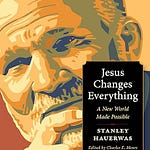

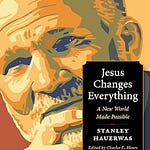
Share this post